983M TUBE MIC PREAMP
The LaChapell Audio 983M is a half rack sized single channel tube preamp that is perfect for small studios, podcast studios, voice overs, and session musicians. Along with the 983S MK2, the 983M is the first preamp to feature True48™, a phantom power supply that provides a consistent 48V for phantom powered mics. Current 48V supplies dip in voltage as the source load changes (such as periods of high transients on many mics). True48 evens out the voltage supply, giving mics greater headroom, quicker transient recovery and a smoother less distorted response.
The LaChapell 983M is capable of stunning clean tones and harmonically rich driven tones. Exceptional on nearly any source, the 983M features high and low pass filters with selectable roll-off frequencies, channel mute, front panel Hi-Z input, pad and polarity switches.
983M PRODUCT FEATURES

DUAL DRIVE KNOBS
The Dual Drive knobs on the 983M mic pre provide an incredible array of tonal options. The input knob drives the input to the first vacuum tube and the second knob drives the input to the output tube. Together, you can dial in sounds from pristine to warm and harmonically rich.

TRUE48™ DYNAMIC PHANTOM POWER
True48 is a dynamic phantom power supply that provides a steady power supply for your condenser and active microphones. Standard phantom power supplies often do not deliver enough power for today’s microphones. True48 ensures your mics get the power they need which results in higher headroom, quicker transient recovery, and smoother response.

INPUT LEVEL LEDS
A four segment input level indicator lets you see the input level allowing your to make appropriate gain decisions.

PAD SWITCH FOR MORE TONAL OPTIONS
The pad switch not only provides a -20dB gain reduction for high input sources, it also works with the Dual Drive knobs to create color and headroom options. Engage the pad and dial in warm tones with lots of headroom.

BEST IN CLASS PERFORMANCE
Everything in the 983S mic pre is designed to be best in class. Every component, transformer, wire and tube has been meticulously selected for performance and longevity.

LOW NOISE AND OUTPUT IMEDANCE
The ultra low output impedance of the 982S mic pre means you can run long cables from the stage to front of house or from studio room to studio room. The ultra low noise means you can record any source with confidence that you are only recording what you WANT to record.

HIGH AND LOW PASS FILTERS
Independent High and Low Pass Filters with selectable frequencies maximize control over your recorded or live signal.

FRONT PANEL HI-Z INPUT
The front panel Hi-Z input allows you to plug a bass or other instrument directly into the 983M. As an instrument front end, the 983M allows for natural tube compression and harmonics to any input source.
983M PRODUCT SPECIFICATIONS
| INTERNAL GAIN | 0 to >72.5dB |
| THD+N | 0.010% (minimum) |
| FREQUENCY RESPONSE | 9Hz to 40KHz |
| MAX OUTPUT (1% THD+N) | +27.8dBu |
| TYPICAL EIN | -124dBu |
| INPUT IMPEDANCE | 1.5KΩ |
| TUBE COMPLIMENT | 1 x 12AX7 / ECC83 |
| TRANSFORMERS | CINEMAG CMMI-10PCA (INPUT) JENSEN JT-11-DM (OUTPUT) |
983M TUBE PREAMP USE EXAMPLES
Click the button below to see some examples of how the LaChapell Audio 983M tube preamp with EQ can be used.
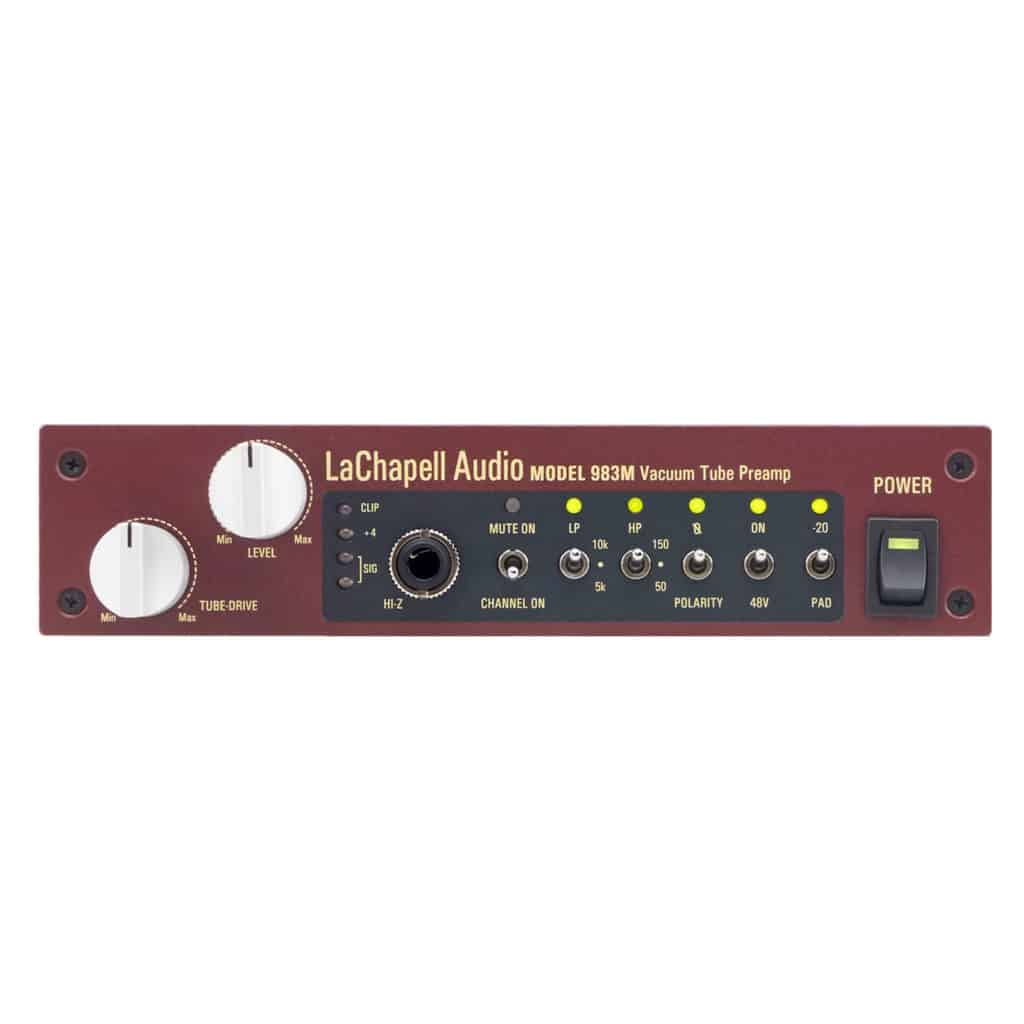
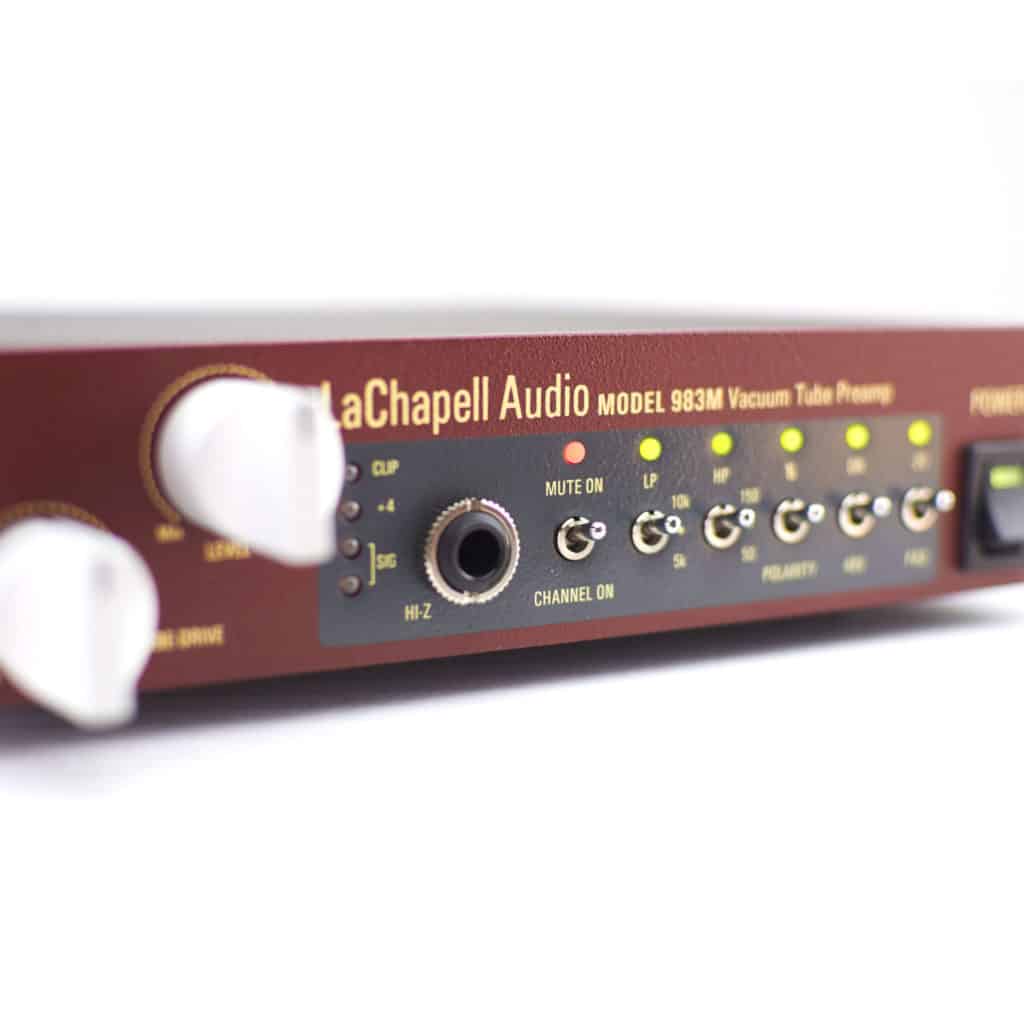
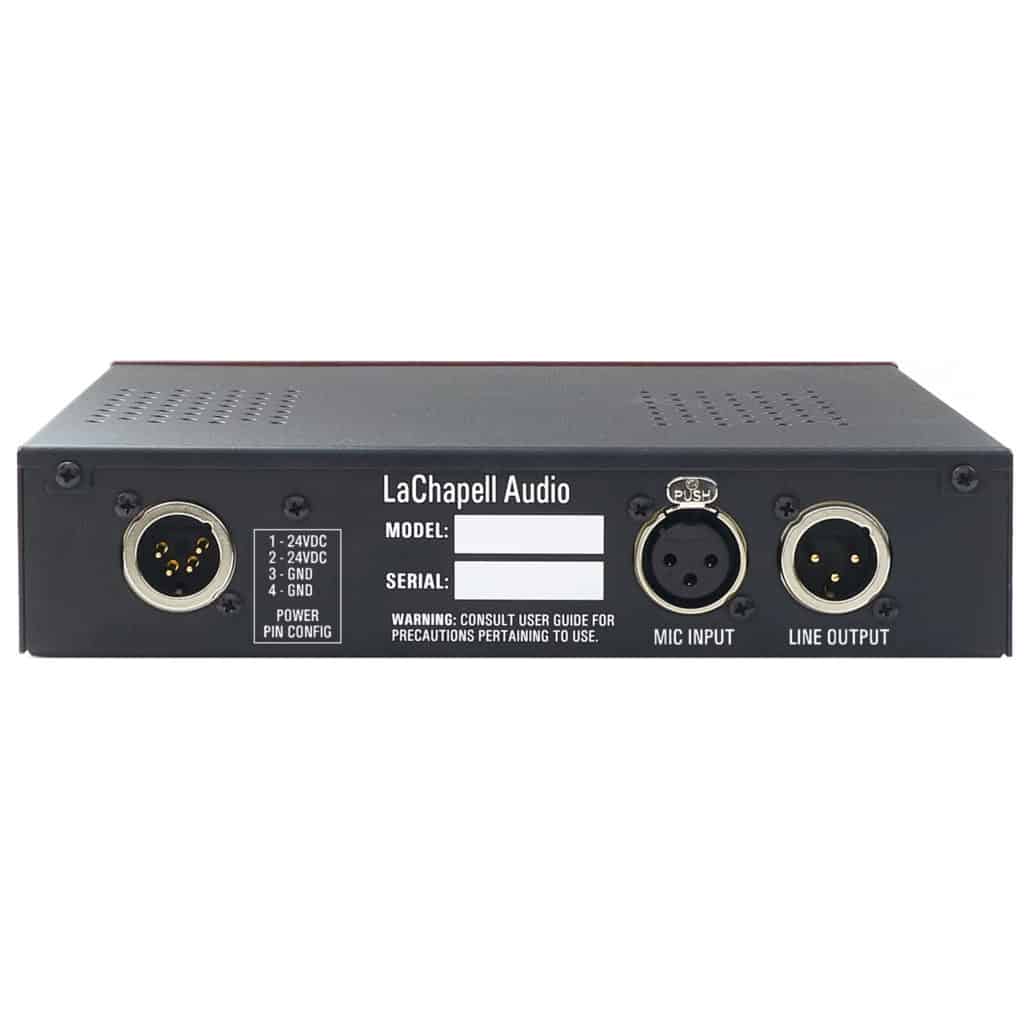
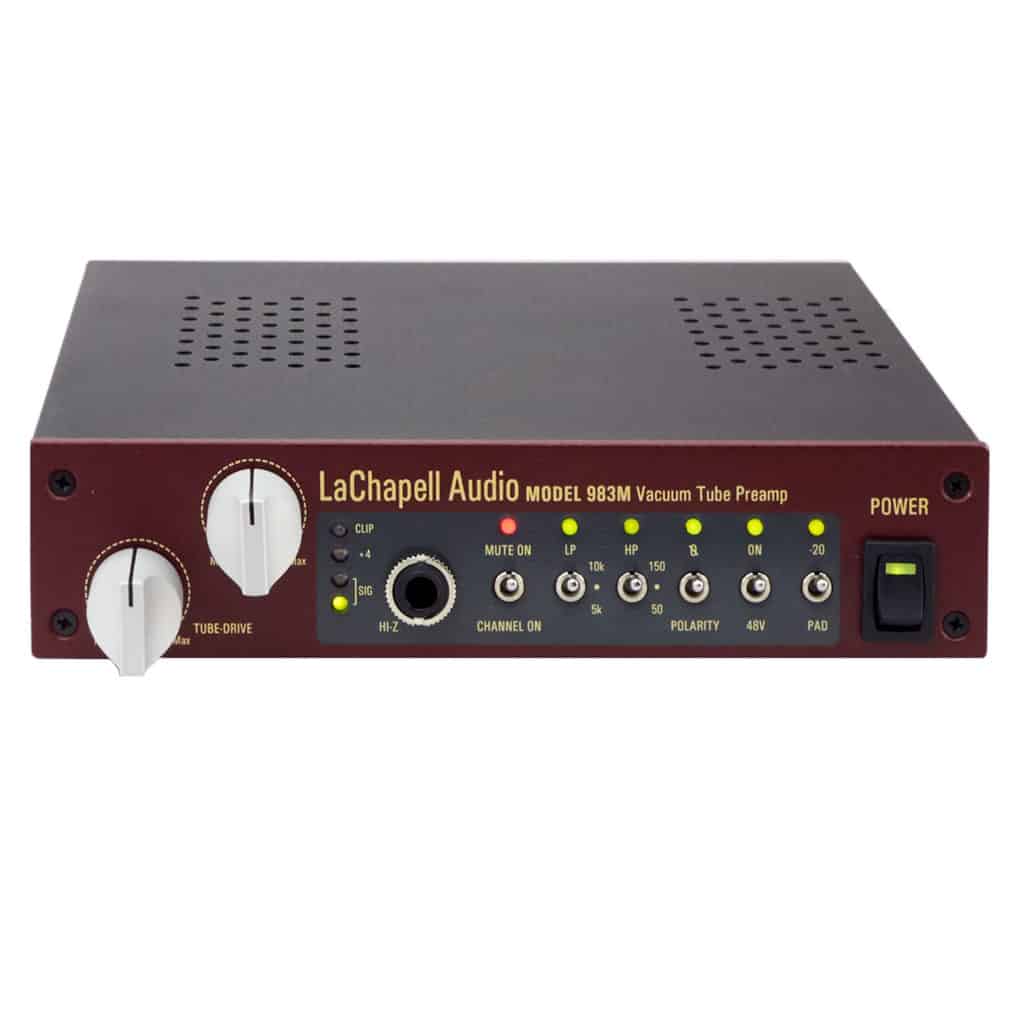
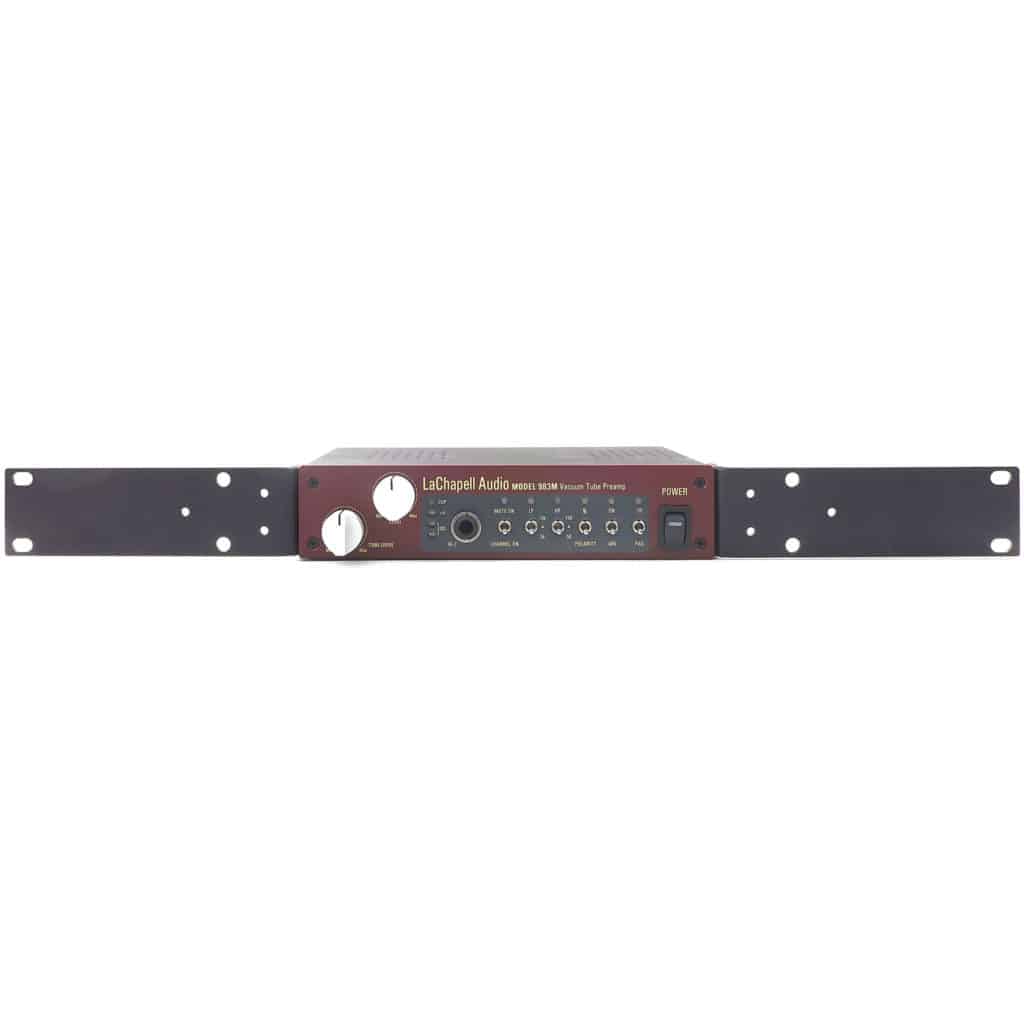
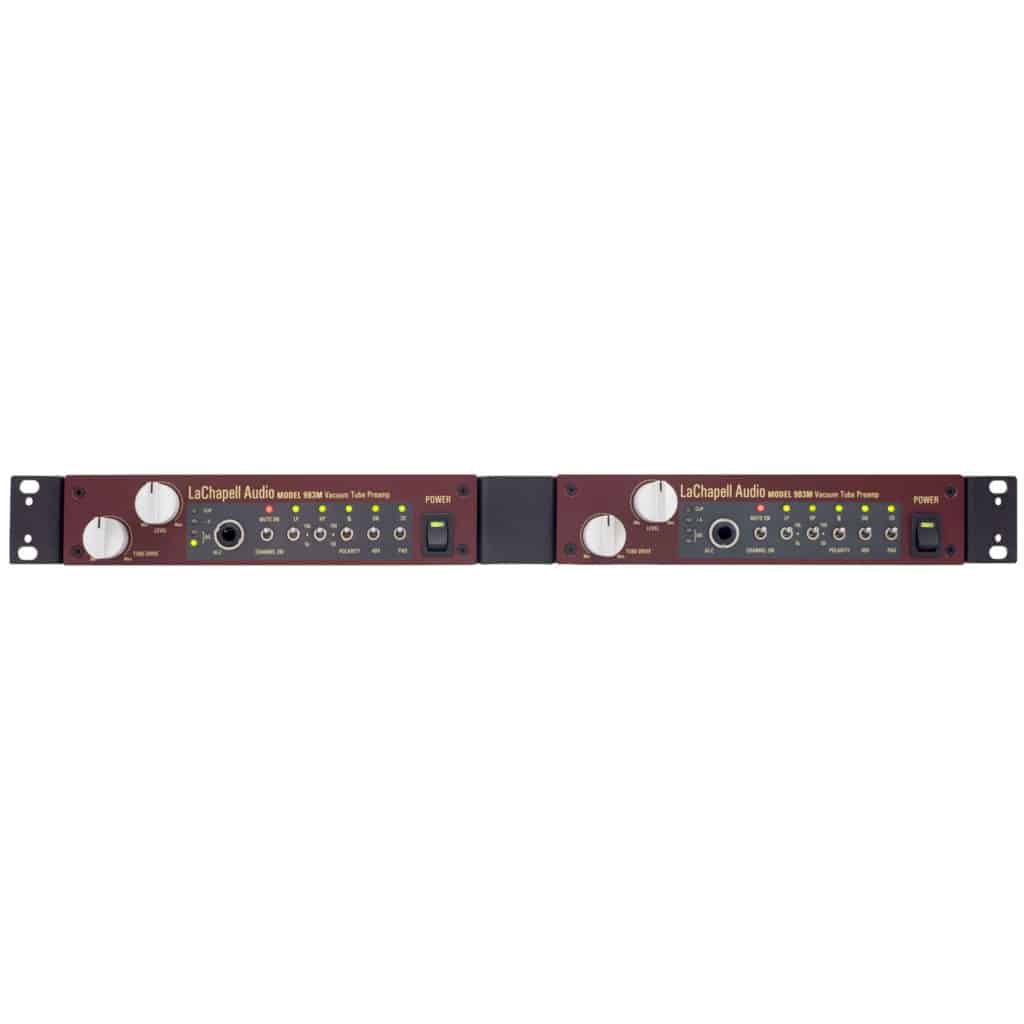

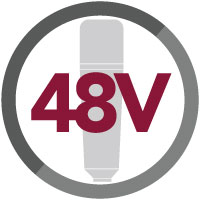

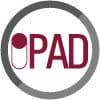




 CLEAN GAIN, HIGH HEADROOM
CLEAN GAIN, HIGH HEADROOM TUBE HARMONICS AND COMPRESSION
TUBE HARMONICS AND COMPRESSION HEADROOM AND WARMTH
HEADROOM AND WARMTH
